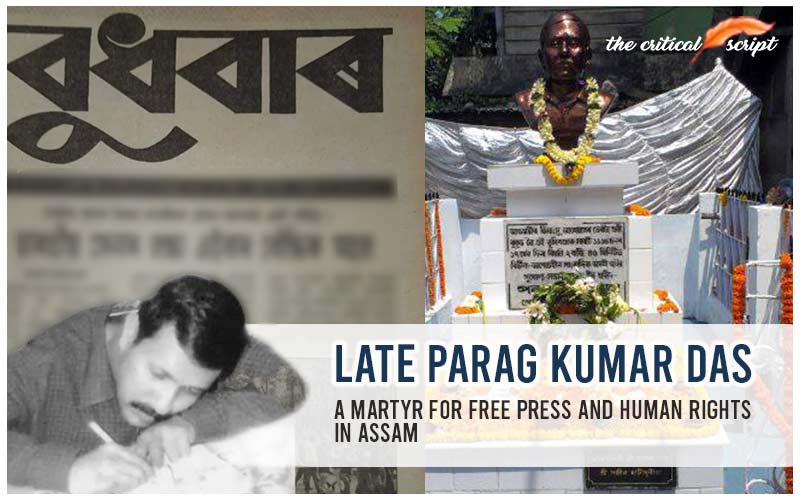
Late Parag Kumar Das: A Martyr for Free Press and Human Rights in Assam
Background
Late Parag Kumar Das was a pioneering journalist and human rights activist from Assam, known for his fearless reporting on human rights violations during the turbulent 1990s, a period marked by intense militancy in the region. His writings not only exposed human rights abuses but also criticized the Central Government’s exploitation of Assam’s resources. Tragically, Das was assassinated on May 17, 1996, while driving his son home from school.
Early Life
Born on February 24, 1961, in Shillong, Parag Kumar Das completed his early education at Chenikuthi Boys School, M.C.M.E School, and Cotton Collegiate Government H.S. School. He pursued higher education at St. Stephen’s College, Delhi, earning an honors degree in Economics, followed by a master’s degree from the Delhi School of Economics.
In 1984, Das began his career as a manager at Punjab National Bank, later serving as a general manager at Unit Trust and the Guwahati Stock Exchange. In 1995, he left his banking career to become the editor of the Assamese daily Asomiya Pratidin, marking a significant shift in his professional focus.
Shift in Career
Though trained as an economist, Das’s career pivoted towards journalism and human rights activism due to the pressing need for voices addressing Assam's complex political and social issues. The formation of the AGP Government under Chief Minister Prafulla Kumar Mahanta created a new political climate where Das's critical perspectives on human rights abuses became increasingly vital.
Assassination
On May 17, 1996, Parag Kumar Das was brutally assassinated in broad daylight by four members of the surrendered United Liberation Front of Asom (SULFA) while dropping his son off at school in Chandmari, Guwahati. The assassins—Mridul Phukan (alias Samar Kakati), Diganta Baruah, Tapan Dutta (alias Biswajit Saikia), and Nayan Das (alias Guli)—were linked to a splinter group of ULFA. This shocking act of violence ignited widespread outrage across Assam and among human rights organizations nationwide. The motive behind the murder was reportedly related to Das’s interview with a leader of the separatist ULFA.
Trial and Judgment Controversy
In 2001, the CBI charged the four accused, all members of the surrendered ULFA, in the Kamrup district and sessions court. However, before the charge sheet was filed, three of the accused were killed. Mridul Phukan, the sole surviving accused, was acquitted on July 28, 2009, due to insufficient evidence. The verdict drew severe criticism from the CBI and Ajit Kumar Bhuyan, then editor of Asomiya Pratidin, who condemned the judgment as indicative of flaws in the judicial process.
Public Reactions
The verdict led to significant disillusionment among Assamese human rights organizations. Lachit Bordoloi, a leader of Manab Adhikar Sangram Samiti, expressed frustration with the judgment and vowed to seek justice through higher courts.
Legacy
The assassination of Parag Kumar Das highlighted the perils faced by human rights activists in Assam and drew international condemnation. His legacy endures through the Parag Kumar Das Memorial Trust, which continues to honor his contributions to human rights advocacy and press freedom in Assam.
Disclaimer: The opinions expressed in this article are those of the author's. They do not purport to reflect the opinions or views of The Critical Script or its editor.

Newsletter!!!
Subscribe to our weekly Newsletter and stay tuned.



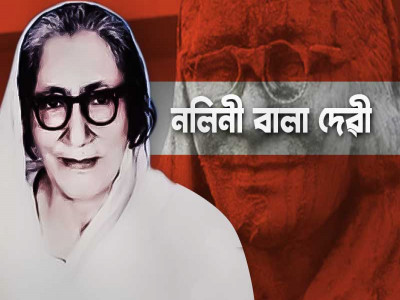

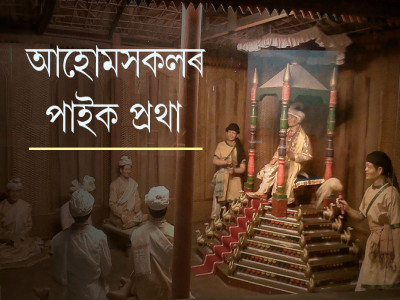
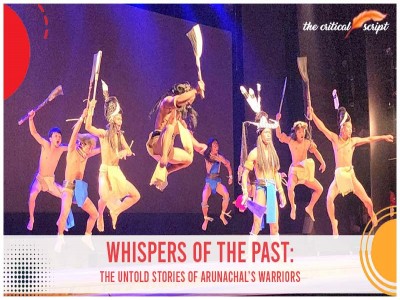
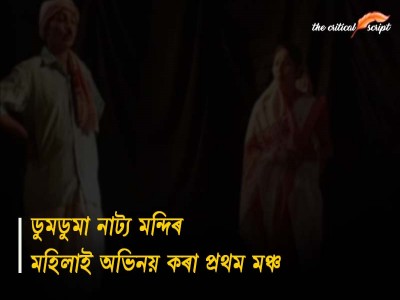









Related Comments